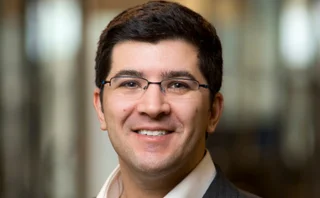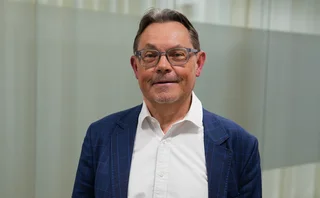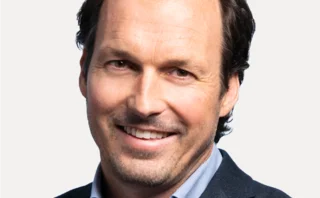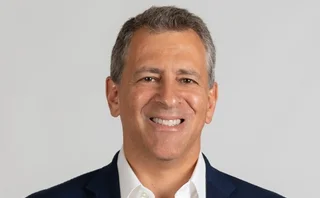
Climate risk manager of the year: Engie
Energy Risk Awards 2022: Pioneering deals in new markets, Engie helps clients and its own business decarbonise

Not so long ago, sky-high energy costs and a carbon price that, in Europe at least, is close to €100/tonne ($105/tonne) would have likely thrown corporate climate action into reverse. No longer, says Jerome Malka, member of the executive committee of Engie global energy management and sales (Gems), Energy Risk’s 2022 climate risk manager of the year.
“We are in a world of high energy costs, and carbon is a component of that,” he says. “Five, 10 years ago, what might have been perceived by my clients as something they need to fight, is now perceived as something they need to embrace. They are embracing it because their clients want it, their shareholders want it and their employees want it. Basically, society at large wants it.”
Last year’s passage by the European Union of its ‘Fit for 55’ package of legislation, which aims to put the bloc on course to cut emissions by 55% of 1990 levels by 2030, provided a big boost to Engie Gems’ work helping its clients decarbonise, says Malka. To that regulatory imperative has been added an energy security dimension, he notes, following Russia’s invasion of Ukraine.
But the urgent realisation that we need to transition away from fossil fuels is undoubtedly generating problems given current conditions, Malka concedes. “To be honest, it is posing a few challenges in the short term, particularly with the dislocation of a number of supply chains [affecting the renewables sector],” he says. “The strong increase in the price of a number of commodities is also making the development of clean power assets more difficult.”
Added to that, he says, it remains difficult to secure permits for new renewable energy projects in parts of the world, including Europe.
However, despite all these challenges, Engie Gems has managed to grow its low-carbon offer, signing more than 2.3 gigawatts equivalent of renewable power purchase agreements with clients over 2021 and the first quarter of 2022.
There are other regulatory barriers that Engie Gems and its customers face in decarbonisation. Malka cites biomethane, derived from waste streams, that could potentially displace around 10–15% of current gas use. As well as permitting problems in this market, alongside “social acceptance”, he notes that regulatory obstacles remain in its commercialisation. “In France, the power produced from green gas is not considered green – industrials still need to surrender EU carbon allowances against it.”
Nonetheless, Engie is notching up some wins in this emerging market. For example, it has structured its first industrial physical supply deal, with a global healthcare company, for biomethane to generate 245 gigawatt hours of power, over three years. Biomethane alone cannot wean Europe off Russian gas, but it “might well be the best answer in specific cases – and, in an energy mix that is likely to be much more diverse than it is now, a component that can address 10–15% of demand is extremely relevant,” he says.
The company offers its clients what it calls the “R6 decarbonisation roadmap”, which leads them from emissions reporting, to rethinking their energy profile, to reducing energy use and replacing higher-carbon energy with a greener alternative. The fifth ‘R’ relates to retracing energy use, with certificates that trace and track the origin of a company’s energy supply, using blockchain technology, while the sixth ‘R’ stands for removal, to address residual emissions that cannot be technically or cost-effectively eliminated.
Here, Engie, along with French insurer Axa, has partnered with a start-up developer of nature-based solutions projects, called Shared Wood, to offer high-quality carbon offset certificates generated by forestry projects in Africa and Latin America. “Forest projects are very easy to explain … but the reality is that they are among the most complex [emission reduction] activities,” he says. Issues including around land rights, social impacts and regulations in some challenging jurisdictions make successful forest carbon projects extremely hard to structure. “The three partners bring professional experience in forestry, funding capabilities of our friends at Axa, and our ability to link this activity with what the market needs,” he says.
Engie is also using its expertise to decarbonise its own businesses. The company has a target to reduce its direct emissions by around 34% by 2030, compared with 2021. In addition, it is also targeting a reduction in Scope 3 emissions – those produced by its clients when they use energy sold by Engie – from around 66 million tonnes of CO2e in 2021 to 52 million tonnes in 2030. “Getting to net zero will be a success only if we do it together,” says Malka.
Only users who have a paid subscription or are part of a corporate subscription are able to print or copy content.
To access these options, along with all other subscription benefits, please contact info@risk.net or view our subscription options here: http://subscriptions.risk.net/subscribe
You are currently unable to print this content. Please contact info@risk.net to find out more.
You are currently unable to copy this content. Please contact info@risk.net to find out more.
Copyright Infopro Digital Limited. All rights reserved.
As outlined in our terms and conditions, https://www.infopro-digital.com/terms-and-conditions/subscriptions/ (point 2.4), printing is limited to a single copy.
If you would like to purchase additional rights please email info@risk.net
Copyright Infopro Digital Limited. All rights reserved.
You may share this content using our article tools. As outlined in our terms and conditions, https://www.infopro-digital.com/terms-and-conditions/subscriptions/ (clause 2.4), an Authorised User may only make one copy of the materials for their own personal use. You must also comply with the restrictions in clause 2.5.
If you would like to purchase additional rights please email info@risk.net
More on Commodities
Energy Risk Asia Awards 2025: The winners
Winning firms showcase the value of prudent risk management amid challenging market conditions
Data and analytics firm of the year: LSEG Data & Analytics
Energy Risk Awards 2025: Firm’s vast datasets and unique analytics deliver actionable insights into energy transition trends
OTC trading platform of the year: AEGIS Markets
Energy Risk Awards 2025: Hedging platform enhances offering to support traders and dealers in unpredictable times
Electricity house of the year: Natixis CIB
Energy Risk Awards 2025: Bank launches raft of innovative deals across entire electricity supply chain
Voluntary carbon markets house of the year: SCB Environmental Markets
Energy Risk Awards 2025: Environmental specialist amplifies its commitment to the VCM
Sustainable fuels house of the year: Anew Climate
Energy Risk awards 2025: Environmental firm guides clients through regulatory flux
Weather house of the year: Parameter Climate
Energy Risk Awards 2025: Advisory firm takes unique approach to scale weather derivatives markets
Hedging advisory firm of the year: AEGIS Hedging
Energy Risk Awards 2025: Advisory firm’s advanced tech offers clients enhanced clarity in volatile times







